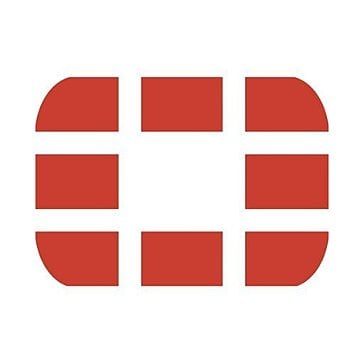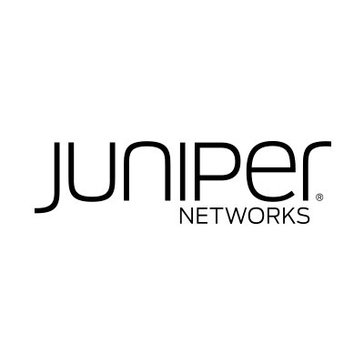Description

FortiGate NGFW

FortiGate
Comprehensive Overview: FortiGate NGFW vs FortiGate
FortiGate Next-Generation Firewall (NGFW) is a comprehensive cybersecurity solution developed by Fortinet. It is designed to protect enterprises from a wide range of sophisticated cyber threats while offering high-performance security capabilities. Here's an overview of FortiGate NGFW, focusing on its primary functions, target markets, market position, user base, and key differentiating factors.
a) Primary Functions and Target Markets
Primary Functions:
-
Threat Prevention: FortiGate NGFWs provide robust threat prevention features, including intrusion prevention systems (IPS), web filtering, and antivirus capabilities. These functions help detect and block known vulnerabilities and malicious activities.
-
Application Control: They can identify and control applications running across the network, ensuring that only legitimate application traffic is permitted.
-
Deep Packet Inspection: This enables FortiGate devices to inspect deep into the data of each packet for malicious content without impacting network performance.
-
Advanced Malware Protection: FortiGate NGFWs utilize FortiGuard Labs’ threat intelligence to detect advanced malware threats, including zero-day vulnerabilities.
-
VPN Support: Secure connectivity is supported through robust Virtual Private Network (VPN) capabilities, including SSL and IPsec VPN.
-
SSL Inspection: The NGFW can inspect encrypted traffic through SSL/TLS inspection, essential for detecting threats hidden in encrypted data streams.
Target Markets:
-
Large Enterprises: FortiGate NGFWs are suitable for large organizations that require comprehensive, high-performance security across expansive and complex networks.
-
Small to Medium-sized Businesses (SMBs): FortiGate offers scaled-down models that are cost-effective and efficient for SMBs requiring sophisticated threat protection.
-
Service Providers: With carrier-grade solutions, FortiGate is well-suited for telecom operators and ISPs in need of robust security for their infrastructure.
-
Government and Education: Customized solutions cater to specific compliance and security needs of government bodies and educational institutions.
b) Market Share and User Base
FortiGate NGFWs are a leading solution in the firewall market. Fortinet, the parent company, is consistently ranked as a market leader in the Gartner Magic Quadrant for Network Firewalls, indicating a strong market presence and high customer satisfaction.
Market Share: FortiGate typically has a significant market share in the cybersecurity industry, often competing with other key players such as Cisco, Palo Alto Networks, and Check Point. Market share statistics fluctuate based on region and vertical, but FortiGate's presence is consistently strong due to its broad product portfolio and competitive pricing structure.
User Base:
- FortiGate NGFWs are used across diverse industries, including finance, healthcare, retail, and more.
- The user base includes Fortune 500 companies, government agencies, and numerous SMBs worldwide.
c) Key Differentiating Factors
-
Integrated Security Fabric:
- FortiGate is designed to seamlessly integrate with Fortinet's Security Fabric architecture, allowing various security products to work together effectively and providing end-to-end protection across the entire digital infrastructure.
-
High Performance:
- FortiGate NGFWs offer high throughput and low latency, making them suitable for high-demand environments that require uninterrupted data handling and rapid response to threats.
-
Custom ASIC Technology:
- Fortinet’s use of custom Application-Specific Integrated Circuits (ASICs) enhances performance by accelerating networking and security functions, which is a significant differentiator.
-
Scalability:
- FortiGate solutions are scalable, from small branch deployments to complex enterprise networks, offering flexibility to adapt as an organization grows.
-
Comprehensive Threat Intelligence:
- The solution benefits from FortiGuard Labs’ global threat intelligence, which provides up-to-date threat data and bolsters the NGFW's ability to neutralize threats quickly.
-
Cost-effectiveness:
- With competitive pricing and a broad range of products to suit various budgets, FortiGate provides value for money, especially for SMBs without large IT budgets.
In summary, FortiGate NGFW is a robust and versatile firewall solution tailored for diverse market needs, distinguished by its performance, integration capabilities, and cost-effectiveness, with a sizeable market presence globally.
Contact Info

Year founded :
Not Available
Not Available
Not Available
Not Available
Not Available

Year founded :
Not Available
Not Available
Not Available
Not Available
Not Available
Feature Similarity Breakdown: FortiGate NGFW, FortiGate
FortiGate Next-Generation Firewall (NGFW) is a product line from Fortinet that offers various models and configurations. Typically, when referencing FortiGate, people refer to the general line of firewalls available from Fortinet. Since FortiGate NGFW embodies the FortiGate lineup in its core features, they largely refer to the same technology suite, differentiated primarily by marketing emphasis or specific advanced configurations for targeting certain customer needs. Here's a breakdown of their features:
a) Core Features in Common:
-
Firewall Capabilities:
- Both provide robust stateful firewall capabilities to protect against unauthorized access and threats.
-
Intrusion Prevention System (IPS):
- Both include IPS technology to detect and block exploit attempts against network vulnerabilities.
-
VPN Support:
- They offer secure VPN (Virtual Private Network) options, including SSL and IPsec VPNs, facilitating safe remote access and site-to-site connections.
-
Application Control:
- Both provide visibility and control over applications running in the network, helping to manage network traffic effectively.
-
Web Filtering:
- They have integrated web filtering features to block access to harmful, inappropriate, or productivity-draining websites.
-
Antivirus and Malware Protection:
- Both offer antivirus scanning and malware protection to guard against malicious code and viruses.
-
Threat Intelligence:
- Integration with FortiGuard Labs' threat intelligence databases for real-time threat data.
-
Integrated Management:
- Centralized management capabilities that can be utilized within larger Fortinet Security Fabric ecosystems.
b) User Interface Comparison:
The user interfaces (UI) of FortiGate products, whether marketed as NGFW or just under the FortiGate banner, are typically consistent given Fortinet's emphasis on a unified FortiOS:
-
Web-Based GUI:
- Both use a web-based graphical user interface which users find relatively intuitive and feature-rich, allowing for easy configuration and monitoring.
-
Command Line Interface (CLI):
- Access through CLI is available for more advanced configuration options or troubleshooting needs.
-
Fortinet Security Fabric Integration:
- The UI facilitates easy integration into the Fortinet Security Fabric, providing a seamless control experience over Fortinet's range of security products.
-
Dashboard Customization:
- Users can customize dashboards across FortiGate models to display critical data and system health metrics according to their preferences.
c) Unique Features That May Set One Apart:
While most core features are similar, certain configurations or product selections in the FortiGate lineup may highlight unique capabilities or optimizations:
-
Advanced Threat Protection:
- Enhanced models or configurations, often highlighted under "NGFW" would have more powerful features like enhanced sandboxing capabilities or threat intelligence services.
-
SD-WAN Capabilities:
- Some configurations emphasize SD-WAN features, helping businesses optimize and secure WAN traffic across distributed networks more effectively.
-
Performance and Scale:
- Higher-end FortiGate models might provide greater throughput, lower latency, or additional hardware acceleration for ultra-fast performance.
-
Specific Industry Solutions:
- Tailored solutions or configurations for specific industries, such as telecom or healthcare, might include additional features or optimizations.
Overall, FortiGate NGFW and the broader FortiGate product lines largely share the same set of powerful security features and integration capabilities, with differentiation mainly evident through specific models or bundles aimed at addressing distinct performance, scale, or industry requirements.
Features

Not Available

Not Available
Best Fit Use Cases: FortiGate NGFW, FortiGate
FortiGate Next-Generation Firewall (NGFW) is a robust security solution offered by Fortinet, tailored to protect against advanced cyber threats while ensuring high performance and scalability. Here's a detailed look at its best fit use cases:
a) Types of Businesses or Projects for FortiGate NGFW
-
Enterprises with Complex Network Environments:
- Large organizations with intricate network infrastructures benefit from FortiGate NGFW due to its ability to handle extensive traffic without degrading performance. Its advanced threat detection and easy integration into existing architectures make it ideal for such use-cases.
-
Organizations Requiring High Throughput:
- Businesses that depend on high-speed data transactions, such as financial institutions and large e-commerce platforms, find FortiGate NGFW essential due to its low latency and high throughput capabilities.
-
Companies with a Strong Focus on Security Posture:
- FortiGate NGFW is suited for companies that prioritize security hygiene and need comprehensive threat intelligence and response mechanisms. These can include the technology sector, government agencies, and research institutions.
-
Multi-Location Enterprises:
- Its ability to seamlessly manage dispersed networks makes FortiGate NGFW a perfect fit for enterprises with multiple branches or distributed workforces.
b) Scenarios where FortiGate is Preferred
-
Comprehensive Security Needs Across Varying Environments:
- In scenarios where an organization needs a versatile security solution that works well across cloud, on-premises, and hybrid environments, FortiGate devices offer excellent adaptability.
-
Integrated Network and Security Management:
- Businesses looking to simplify network and security management through consolidation will benefit from FortiGate’s integrated Fabric Management Center, which offers centralized network and security management.
-
Scalability Concerns:
- FortiGate is a suitable choice for businesses anticipating growth, as its NGFW can scale with the organization, making it a future-proof investment.
-
Budget-Conscious Organizations:
- For small to medium-sized businesses that need robust network security without a significant financial outlay, FortiGate provides a cost-effective solution with flexible licensing options.
d) Catering to Different Industry Verticals or Company Sizes
-
Small and Medium Enterprises (SMEs):
- FortiGate provides cost-effective, high-performance security tailored to the needs and budgets of SMEs. It includes simplified deployment and management, crucial for organizations without specialized IT teams.
-
Large Enterprises:
- For large global enterprises requiring high performance and advanced threat protection capabilities, FortiGate NGFW offers advanced features like deep packet inspection and sandboxing, catering well to complex IT environments.
-
Healthcare Industry:
- FortiGate NGFW supports compliance with healthcare regulations (e.g., HIPAA) through its robust security features, making it ideal for hospitals and medical institutions.
-
Finance Sector:
- In finance, where data protection is paramount, FortiGate’s capabilities in providing high-security measures with low latency make it highly suitable for banks and other financial institutions.
-
Educational Institutions:
- These organizations can benefit from the granular control and visibility needed to monitor and manage student and staff network traffic effectively.
-
Retail:
- With FortiGate, retail companies can secure their point-of-sale systems and protect sensitive customer data, which is critical for PCI DSS compliance.
Overall, FortiGate NGFW is a flexible, comprehensive security tool that can be tailored to meet the varied needs of different organizational sizes and industry sectors, offering robust protection without compromising performance or scalability.
Pricing

Pricing Not Available

Pricing Not Available
Metrics History
Metrics History
Comparing undefined across companies
Conclusion & Final Verdict: FortiGate NGFW vs FortiGate
To provide a conclusion and final verdict on FortiGate NGFW (Next-Generation Firewall) and FortiGate, it's important to look at the overall value, pros and cons of each product, and specific recommendations for potential users.
a) Best Overall Value:
FortiGate NGFW generally offers the best overall value if your primary focus is on comprehensive security features, advanced threat protection, and scalability. The NGFW line is designed to provide more robust and extensive features, making it suitable for organizations requiring high-level network security and advanced functionalities.
b) Pros and Cons:
FortiGate NGFW:
-
Pros:
- Advanced Security Features: Includes intrusion prevention, SSL inspection, application control, and advanced threat protection.
- Scalability and Integration: Offers seamless integration with other security products and can scale to meet the needs of growing networks.
- User-Friendly Interface: Enhanced user interface for managing complex security policies.
- Performance: Excellent performance in handling encrypted traffic and delivering high throughput.
-
Cons:
- Cost: Generally more expensive than standard firewalls, which may be a consideration for smaller businesses with limited budgets.
- Complexity: The advanced features can lead to complexity in configuration and management, requiring trained personnel.
FortiGate (Standard):
-
Pros:
- Cost-Effective: Typically more affordable, making it suitable for small to mid-sized businesses or budget-conscious organizations.
- Ease of Use: Simpler setup and management compared to NGFW, making it easier for smaller IT teams to handle.
- Solid Security Foundation: Provides essential firewall capabilities and network protection.
-
Cons:
- Limited Features: May lack some advanced features found in NGFW, such as comprehensive threat detection and prevention tools.
- Scalability: Less suitable for very large or complex network environments that require extensive scalability.
c) Recommendations:
-
For Small to Mid-Sized Businesses: If budget is a primary concern and the network environment is not overly complex, the standard FortiGate might be sufficient. It provides robust security features at a lower cost and is easier to manage.
-
For Large Organizations or Those with Complex Security Needs: Consider FortiGate NGFW for its advanced security capabilities. This product is more appropriate for businesses needing to protect against sophisticated cyber threats and requiring features like intrusion prevention and application control.
-
Assessment of Needs: Users should assess their specific security needs, budget constraints, network complexity, and IT resources. A thorough evaluation will help determine the most appropriate model.
-
Future Growth Considerations: If an organization anticipates rapid growth or a significant increase in network traffic, investing in NGFW might be more advantageous in the long term.
In conclusion, the best choice between FortiGate NGFW and FortiGate depends largely on the specific needs and circumstances of the user’s organization. Each product offers its own value, tailored to different scales and complexities of network environments.
Add to compare



